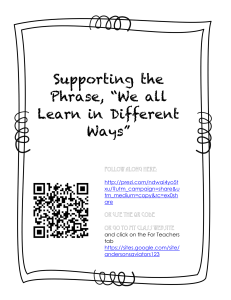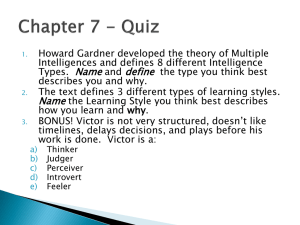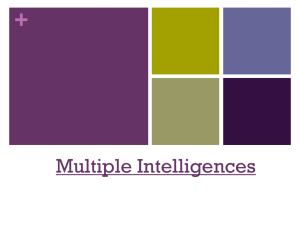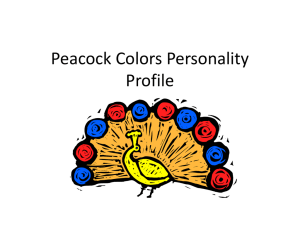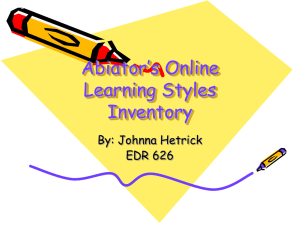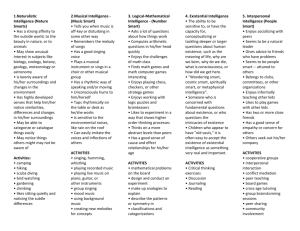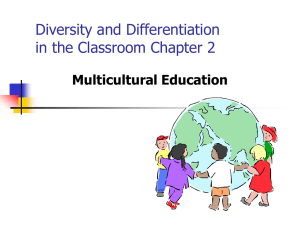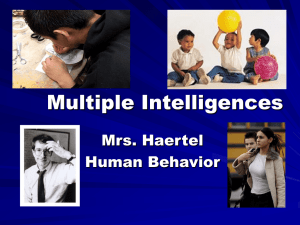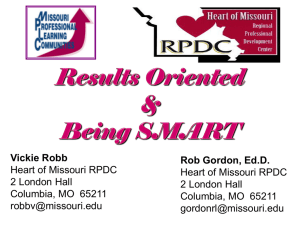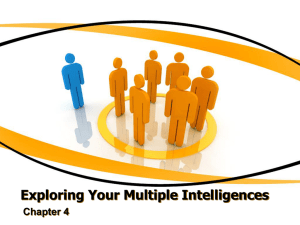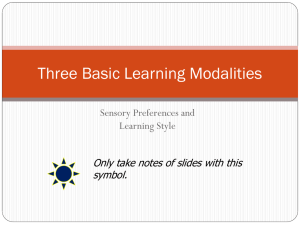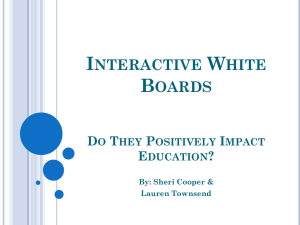View PowerPoint
advertisement
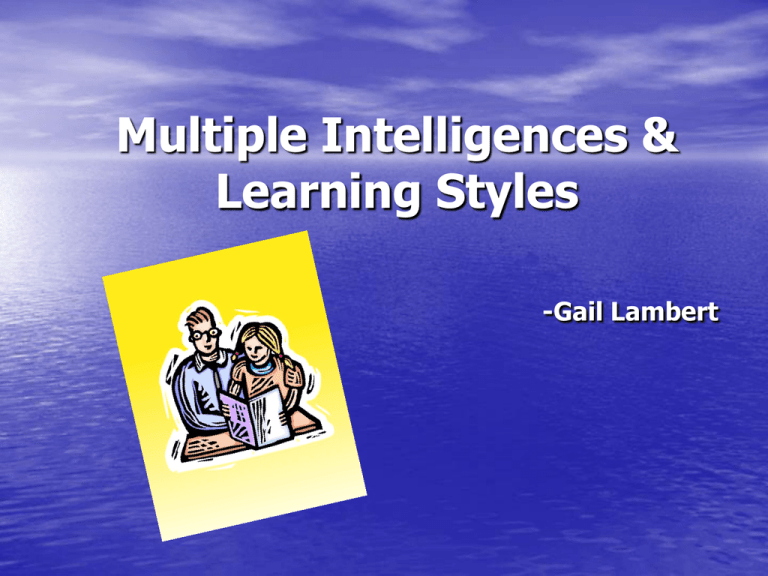
Multiple Intelligences & Learning Styles -Gail Lambert Click Here BE SMART • Verbal/linguistic – (word smart) • Logical/mathematical – (number/reasoning • • • • • • smart) Visual/spatial – (picture smart) Bodily/kinesthetic – (body smart) Musical – (music smart) Interpersonal – (people smart) Intrapersonal – (self smart) Naturalist – (nature smart) (www.thomasarmstrong.com/multiple_intelligences.htm) Verbal/Linguistic • Loves to read, write, debate & tell stories • Has good memory for names, places, dates & • • • • • • trivia Often takes notes Learns better after seeing/writing A “Bookworm” Grasps concepts on first reading Can read for hours at a time Auditory skills tend to be highly developed Return to List Logical/Mathematical • Ability to reason (sciences & math) • Strong problem-solving skills (cause & effect experiments) • Likes to experiment • Excels in science-related logic • Generally thinks in terms of concepts & questions; loves to put ideas to the test Return to List Visual/Spatial • Needs mental/physical picture to understand new information • Does well with maps, charts, diagrams • Learns by seeing/watching demonstrations • Becomes impatient or “drifts” when extensive listening is required • Requires quiet to study • Keenly perceptive of visual details Return to List Bodily/Kinesthetic • Good at physical activities, hand/eye • • • • • • coordination Tendency to move around, touch things, gestures when speaking Learns by doing & moving – direct involvement Often a poor listener Learns better when able to move Uses movement to help concentrate Enjoys physical challenges Return to List MUSICAL • Can understand & appreciate music • Sensitive to pitch & rhythm of sounds • Can remember melodies • Enjoys listening to music • Likes to sing, hum, or play instrument • Sensitive to all types of nonverbal sound & rhythm of everyday noise Return to List INTERPERSONAL • • • • • • • Naturally social Able to work effectively with others Has strong leadership skills Understands others Skilled at organizing, communicating, negotiating Learns best in group work – excellent team player Friendly and out-going Return to List INTRAPERSONAL • Understands own emotions, goals & intentions • Has strong sense of self • Usually chooses to work on own • Enjoys self-paced projects & having space • In touch with inner feelings • Forms realistic goals for self Return to List NATURALIST • Latest addition • Likes to be involved with nature • Notices patterns, features, etc. in ecology • Understands & appreciates how nature and people interact • Likes exploring & learning about plants Using Your Learning Style • Identify your strongest & weakest learning styles • Incorporate from your best style into your study time • Work on improving your weakest styles http://www.youtube.com/watch?v=BkeAzqhlkNk Don’t get caught with your “Pants on the Ground” Discover Your Learning Style www.learningstyles.org References • Nicholson-Nelson, K. (1998). Developing students’ multiple intelligences. New York, NY: • Scholastic Professional Books. Silver, H., Strong, R. & Perini, M. (2000). So • Association for Supervision and Curriculum Development. www.learningstyles.org each may learn: Integrating learning styles and multiple intelligences. Alexandria, VA:
